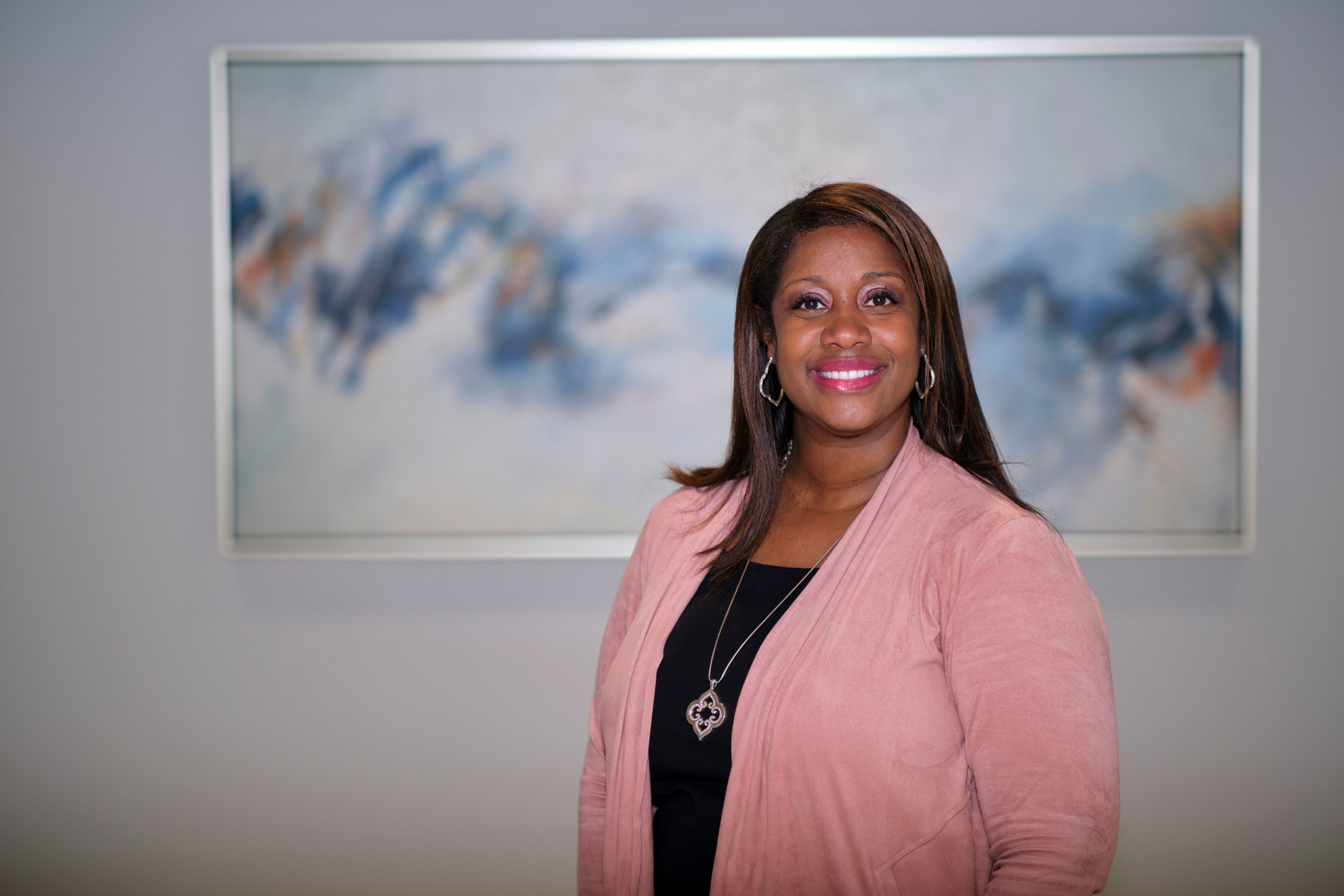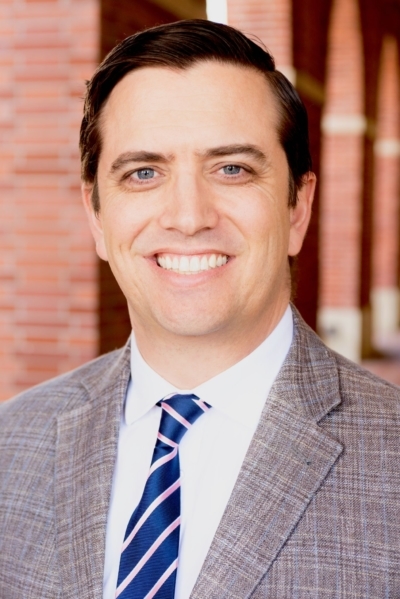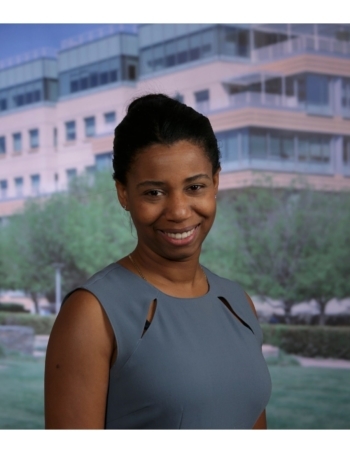
Erica Dianne Taylor, Duke University (Fuqua)
4) I’m too busy: “The biggest myth about going back to school was that, as a female surgeon, mother, and wife, my “plate would be too full” to succeed at business school. I cringed every time I was questioned about my ability to manage, adding this experience to my career journey because, to me, it represented many biases that are pervasive in both medical and business worlds. I found that by identifying my desired goals for this adventure and securing the support of my family, I was able to integrate my experience into my current life with ease. I became stronger personally and more courageous professionally and did not get intimidated by the perception of impossibility that some colleagues tried to convey.”
Erica Dianne Taylor, Duke University (Fuqua)
5) An MBA is for the young: “I was glad that I embarked on my MBA at a later stage in my life after accruing work and personal experience. I believe that my age and experience made for a richer MBA journey as I was able to metabolise the MBA teachings through a filter of my own work and life experience. For me, I found that I was able to fully appreciate the lessons about self-awareness and the nuances of leadership psychology at this stage of my life than I would have been as a younger graduate. Education and learning should never be discrete, rather it is a continuous process that you are able to appreciate even more as you mature.”
Shagita Gounden, University of Cambridge (Judge)

Ben Wells, USC Marshall
“Many people think going back to school will be hard because they “Haven’t written a paper in so long.” or “Don’t remember the last time they studied for an exam.” I would argue that those things come back pretty quickly. In some ways, it is easier because you have more life experience to lean on. What is harder is that you now have greater responsibilities and commitments pulling at your attention, so you have to make a tough choice about who or what gets it.”
Ben Wells, USC (Marshall)
6) Grades are important. “Most of us have arrived to where we are because we love achievement. When in school, achievement = grades = an A in every class. In an executive MBA program, this is a myth. I would argue that it’s about the relationships, the opportunity to get our hands dirty, to fail, to learn and to grow. It’s very difficult to focus on grades and to really take advantage of everything that MIT Sloan (or any MBA program) can offer in terms of experience.”
Catharine Smith, MIT (Sloan)
7) There is a ‘right time’ to get an MBA: “That “right” time is very different for everyone and doesn’t always present itself clearly. Although there are a few clear-cut “wrong” times, other times are as good as any. Students in my class became parents, lost parents, found partners, lost partners, relocated, started new jobs, found themselves without a job – all of these life events would have seemed overwhelming on their own, but to add school to it? On the surface, it might seem un-doable. But it is doable – and has been done by many before.”
Tiffany Pillifant, University of Virginia (Darden)
8) It’s hard to learn in a classroom setting: “You learn from classroom discussions, interaction with your teams and professors, and by applying various models and concepts to solve real life problems. At the end of the day, you will acquire knowledge more by practical applications vs theoretical methods.”
Reeta Pattanaik, Penn State (Smeal)

Samantha Palmer, Wharton School
“I was pretty nervous about my ability to sit down, focus and learn vast amounts of new material as it had been years since my university and medical school days of putting in long hours at the library. Truth be told, when you are truly passionate about the subject and it directly applies to your everyday professional life, it is a lot easier than you expect.”
Daniel Lakoff, MD, Cornell University (Johnson)
9) Classmates will be ultra-competitive: “I expected to find myself surrounded by very serious and overly competitive individuals – especially at Wharton – while I was simply interested in learning. I was not expecting to build so many genuine friendships as an adult, have professors I could relate to and have a drink with, attend baby showers, support new moms and dads juggle school, listen to classmates pitch business ideas I could consider investing in, or simply hold the hand or hug a classmate who’s having a hard week. Going back to school wasn’t only about getting more education, but about connecting with people who were in similar phases of life as myself. My classmates were open-minded, collaborative, like-minded, kind and generous and we’ve bonded through the grueling journey we survived together called the Wharton Exec MBA.”
Samantha Palmer, Wharton School (San Francisco)
“For me, it would probably be that most of my classmates would be businessmen focused on money. I was very pleasantly surprised to find out that my classmates have a lot of different backgrounds and that most people aren’t just “suits in an office” types.”
Alejandro Macías Torre, ESADE
10) MBAs are a dime a dozen: “The idea that there wasn’t value in the degree wasn’t something I believed, clearly, because I dove headlong into WashU’s EMBA program. But as I approach the close of this program, the value of my time and this degree is clearer than ever. I am better prepared to make decisions, engage effectively as a leader, and understand the financial and operational implications of business decisions than I was 20 months ago. The time and effort I’ve expended has helped me draw connections from my past experience and expand those ideas with new knowledge in ways that I know will help carry me through my career.”
Faye Prevedell Dixon, Washington University (Olin)

Pradnya Parulekar, UCLA Anderson
11) You have to do all of the readings: “As genuine as your intentions might be, you ultimately realize that there is just no way to get through all of the readings. This is especially true given that the program is a full-time workload and, at the same time, we’re doing a full-time job. It’s a balancing act – as executives we have to make choices all the time, and sometimes the readings don’t make the cut.”
Lindsey Kettel, McGill-HEC Montreal
12) It will solve all of your problems: “There is a belief that by getting the MBA, you will somehow magically change into this amazing person who will find the perfect job. This is not like undergrad where you evolve due to age and experience over 120 credit hours. The changes you are hoping to experience will only happen if you take the time to try new things and you do all of the work. Try not to judge others too harshly – there will always be the slackers and complainers. That’s their choice, don’t make it yours.”
Pradnya Parulekar, UCLA (Anderson)
DON’T MISS: 2020 BEST & BRIGHTEST EXECUTIVE MBAS





Questions about this article? Email us or leave a comment below.